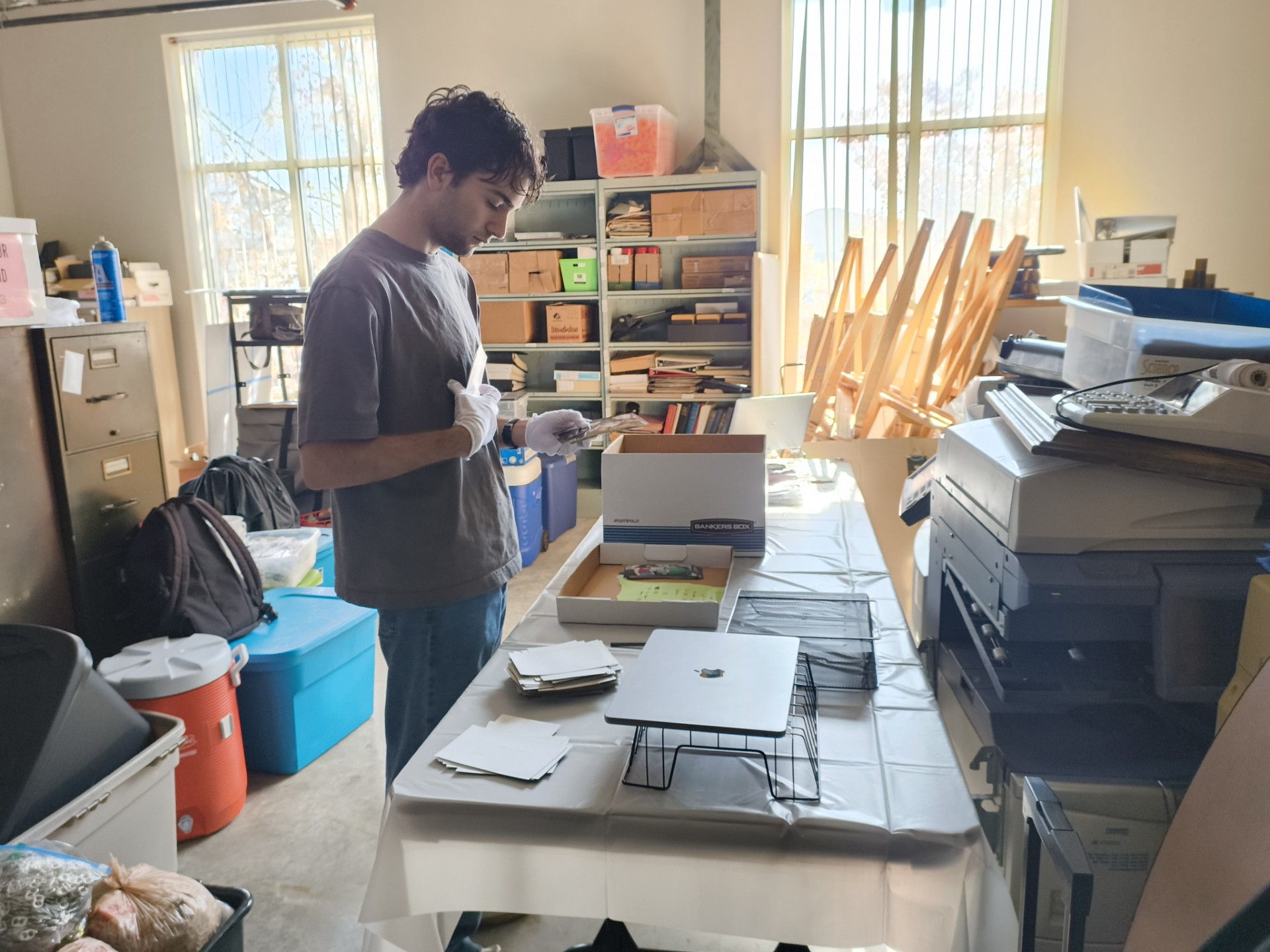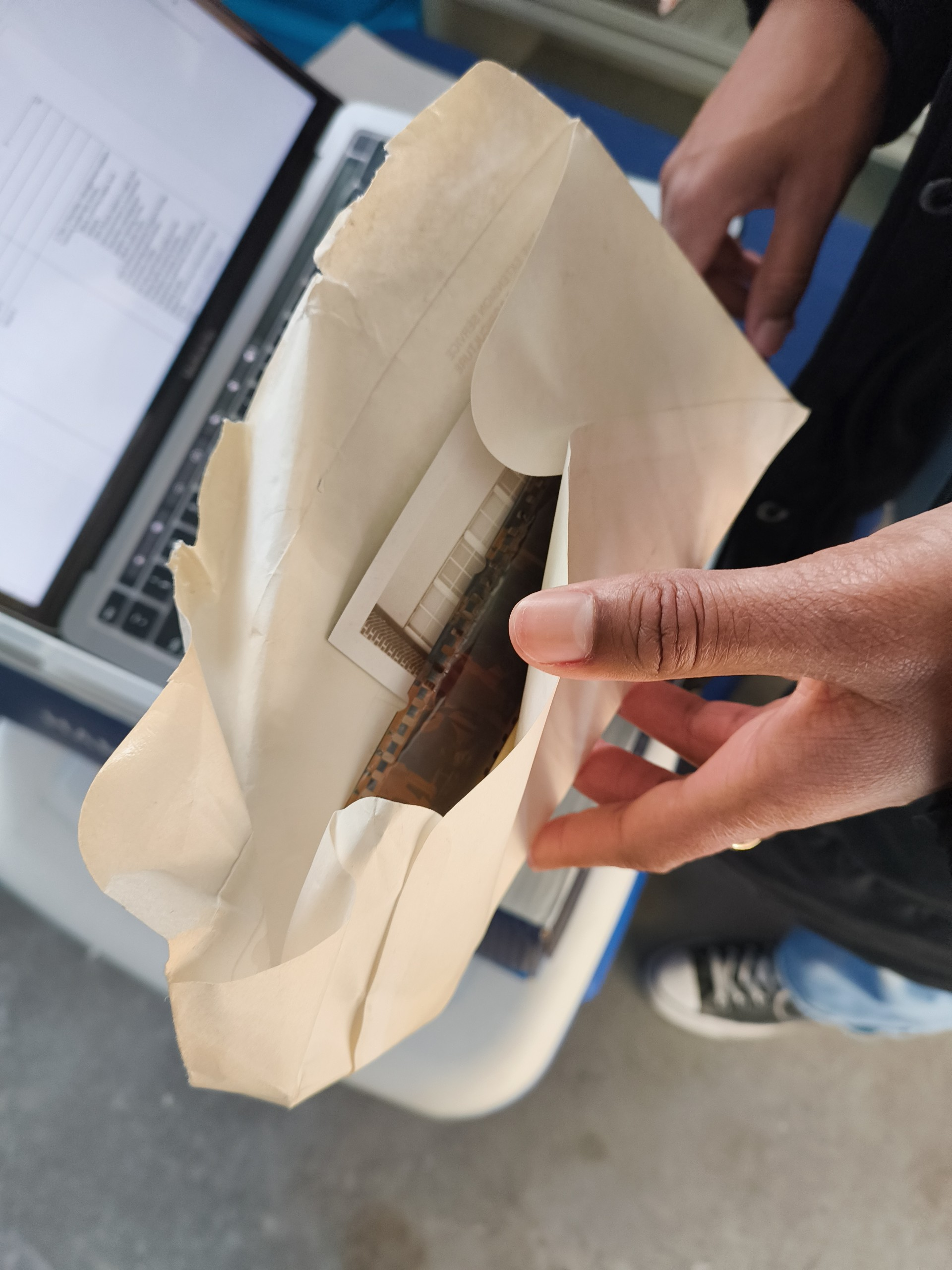A legacy of service unites Oxford College and 4-H to preserve history

Oxford College has partnered with 4-H in Newton County to chronicle the storied organization’s past and train young archivists in the fine art of preserving history.
“In September, Dr. Bridgette Gunnels from the Oxford Center for Pathways and Purpose (CPP) presented us with the opportunity to provide field training for two Oxford College interns to help organize archival records for the Newton County arm of the international 4-H organization," says Ellen Neufeld, director of the Oxford College Library. “This community collaboration reinforces how Oxford continues to be a strong partner to local organizations.”
Kerry Bowden, archivist for the library’s archives and special collections, points out the educational value in a project of this scope. “Not only do we assist 4-H in creating a searchable historical legacy for future generations, but we teach our interns to create a guide for researchers, ensuring the provenance and long-term credibility and usability of the collection,” she explains. “They will draft a replicable toolkit, including workflows, checklists, and training guides, to support similar archival efforts at other 4-H offices and establish a model for interns to assist other community organizations with similar projects.”

Newton County’s 4-H Youth Development Extension Agent Charlene Scott has worked with interns to conceptualize records in the archives. “In 1904, Newton County 4-H was the first 4-H program to be established in Georgia,” Scott explains. “Over time the program has grown and developed into what we now call Georgia 4-H.”
As an organization, 4-H provides all youth the chance to discover their passion, learn to thrive, and ready themselves for future opportunities. “In May 2025, Newton County will host the Georgia Association of 4-H Youth Development Professionals (GAE4-HYDP) annual conference,” Scott says. “Through this project each participant will receive a handout, developed from the archived information, highlighting the history of Newton County 4-H. For National 4-H Week October 7-12, Newton County’s archived items will also be used to create displays for sharing at community locations.”
The Archivist’s Role
Under librarian, faculty, and 4-H agent guidance, and for academic credit, Interns Sarah Speed 25Ox and Dylan Singer 26Ox developed archival processing skills through appraising records, creating descriptive metadata, and developing strategies for optimal preservation. Particular attention was paid to documenting and confirming the contributions of individuals of color prior to the organization’s desegregation.
As a future researcher, Speed points out, “This process has taught me how to handle delicate materials and pay attention to minor details that could turn out to be incredibly important later on.” Speed contends,
“Archiving allows for us to preserve memories that might otherwise be lost. It helps communities to remember important events, people, and achievements, but can also hold us accountable for past wrongdoing and reveal people that were otherwise erased from the narrative.”

As this experience draws to a close, Neufeld notes, “We are very proud of the way our interns have learned to navigate real-world archival projects through this important community initiative.”
College-Community Partnership Potential
When great minds get together, communities grow stronger. “One of our goals is to enhance the broader Newton County area through strategic projects with stakeholders and partners,” says Laura Gafnea, director of community relations for Oxford College. “Part of that involves listening to our partners, learning about their priorities, and seeing how Oxford College might be uniquely positioned to support those priorities.”
Each year, Oxford students, faculty, and staff donate 13,000 hours to community service. “Oxford College currently partners with over 60 non-profits, civic organizations, businesses, and educational institutions on a variety of engagement and volunteer opportunities,” Gafnea explains. “The capacity-building impact of our work with those organizations is already quite significant, and I hope we’ll continue to explore strategic and innovative projects that align well with our students’ goals as well as our community partners’ priorities.”
Do you know of an organization that might benefit from partnering with Oxford College to solve a problem, expand engagement and reach, or preserve history? Learn more today about how Oxford can partner with your team.